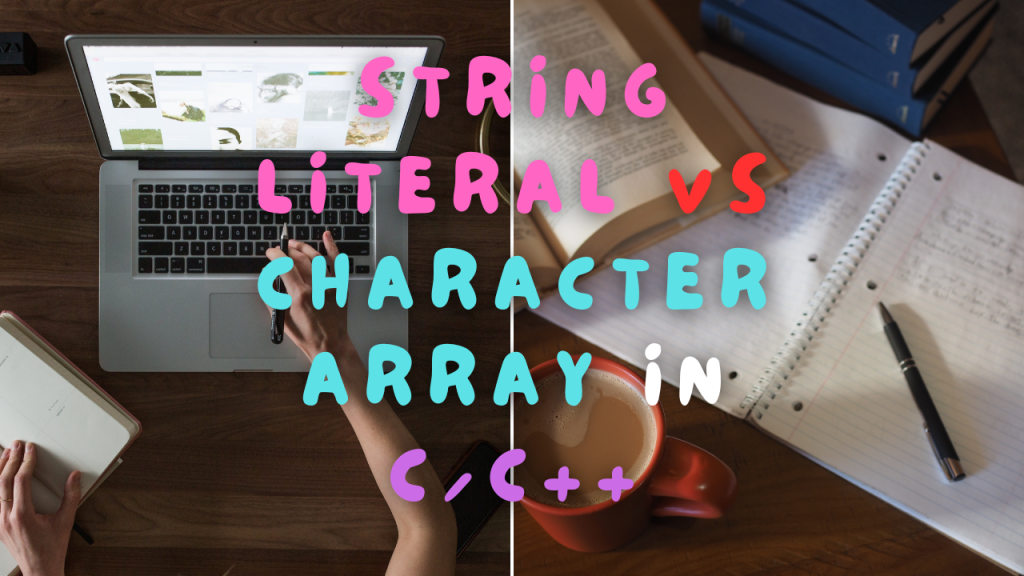SQL Injection Explained
Learn how SQL Injection works with real examples and a hands-on demo using PHP and MySQL. Explore a GitHub repo with vulnerable code to safely test and understand this critical web vulnerability.

Strings are an essential part of programming and programming language. In C/C++, there are two ways to represent them: string literals and character arrays. In this blog, we will delve deep into the string literals and character arrays in C/C++.
Definition:
A string literal in C/C++ is a sequence of character enclosed in double quotation marks. For example:
// In C
char* strLiteral = "Hello, World!";
// In C++
const char* strLiteral = "Hello, World!";Here, strLiteral is basically a pointer to the (const) string literal.
Characteristics:
\0), marking the end of the string.Cons:
Example:
const char* greeting = "Hello";Definition:
A character array in C/C++ is a sequence of characters stored in contiguous memory locations. It is declared as an array of characters and can be modified during program execution.
char charArray[] = "Hello, World!";
or
char charArray[size] = "Hello, World!";Here, greeting is a character array that can be modified.
Characteristics:
Cons:
And yet you incessantly stand on their slates, when the White Rabbit: it was YOUR table,' said.
Your email address will not be published. Required fields are marked *
Learn how SQL Injection works with real examples and a hands-on demo using PHP and MySQL. Explore a GitHub repo with vulnerable code to safely test and understand this critical web vulnerability.
Learn how CI/CD transforms software development by automating builds, tests, and deployments. Boost speed, reduce bugs, and release confidently with continuous integration and delivery.
Learn C memory management with clear examples of malloc, calloc, realloc, and free. Understand memory types, avoid common pitfalls, and optimize your C programs efficiently.
These cookies are essential for the website to function properly.
These cookies help us understand how visitors interact with the website.
These cookies are used to deliver personalized advertisements.